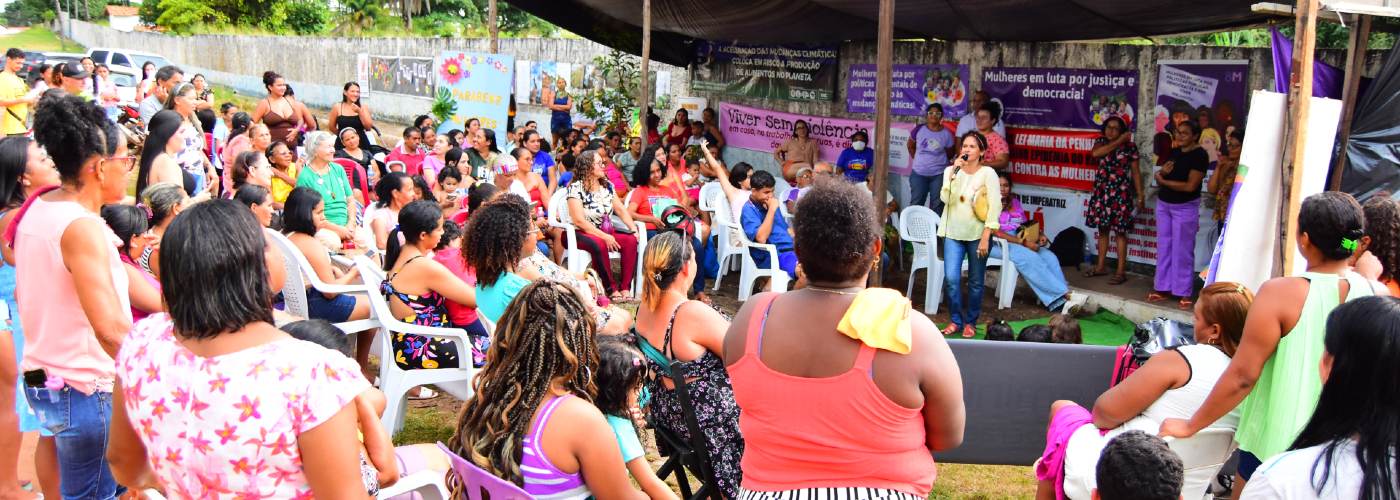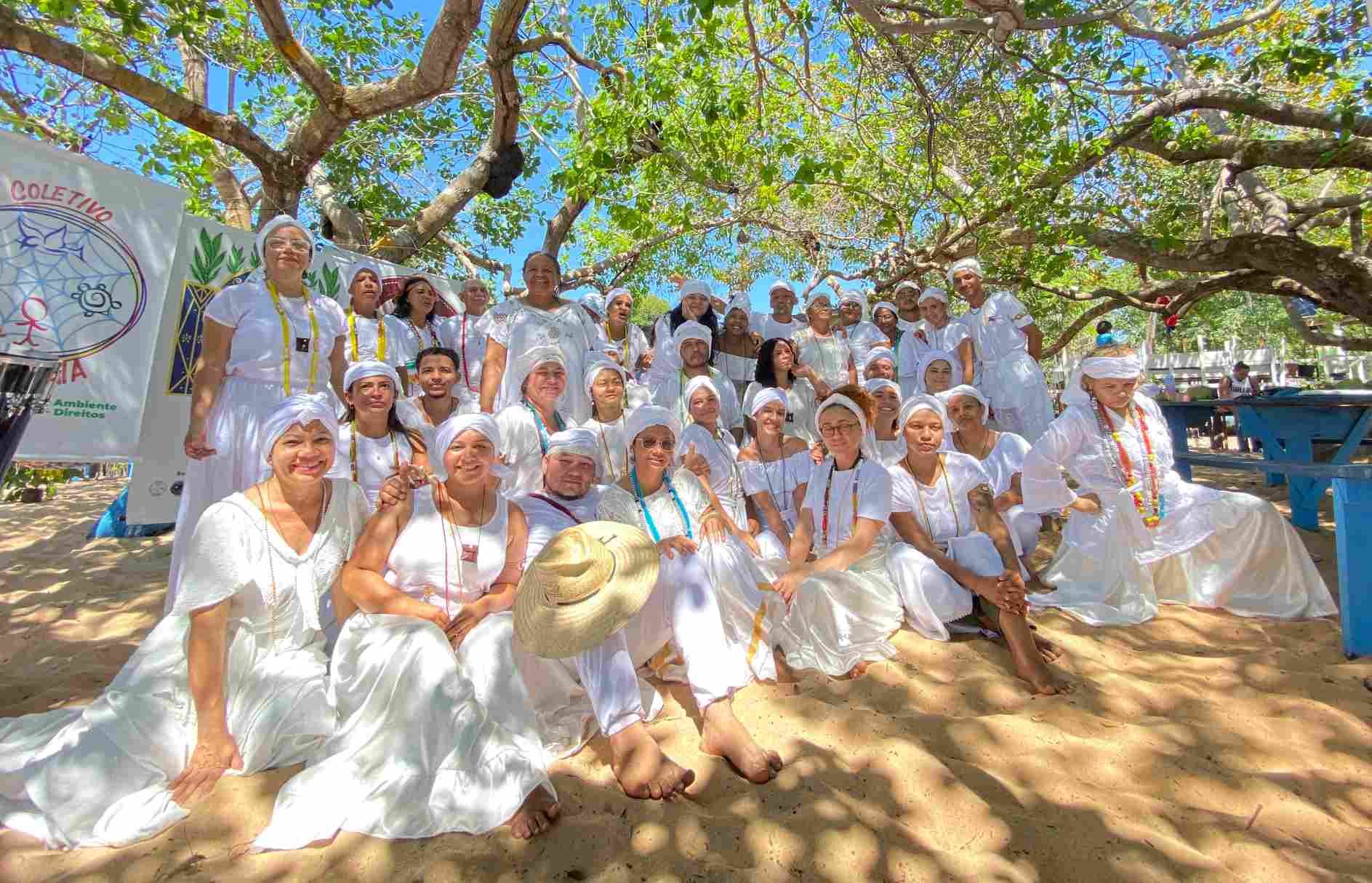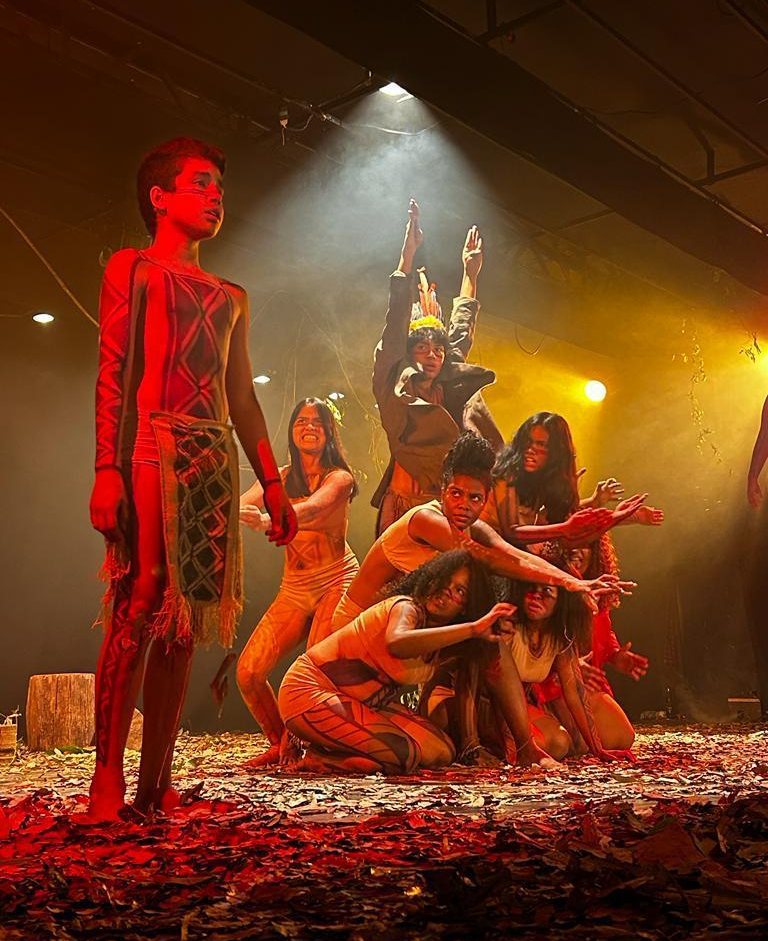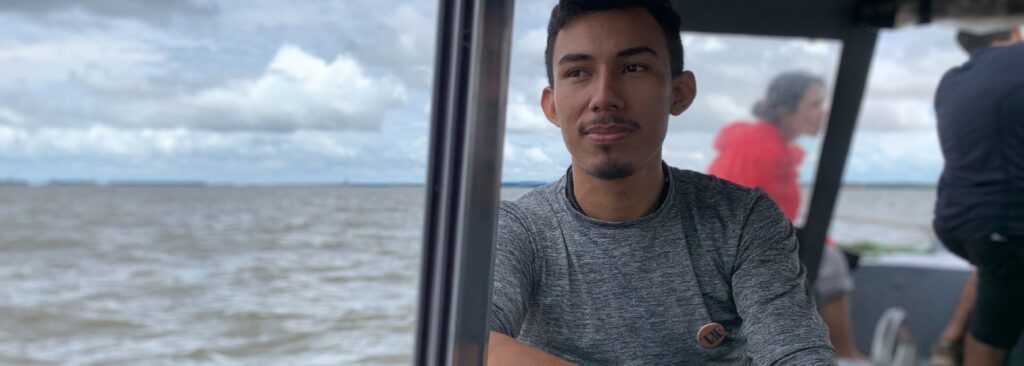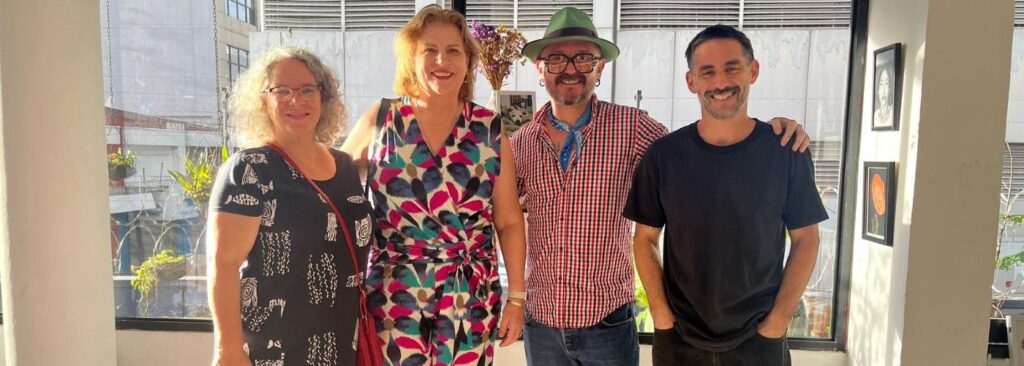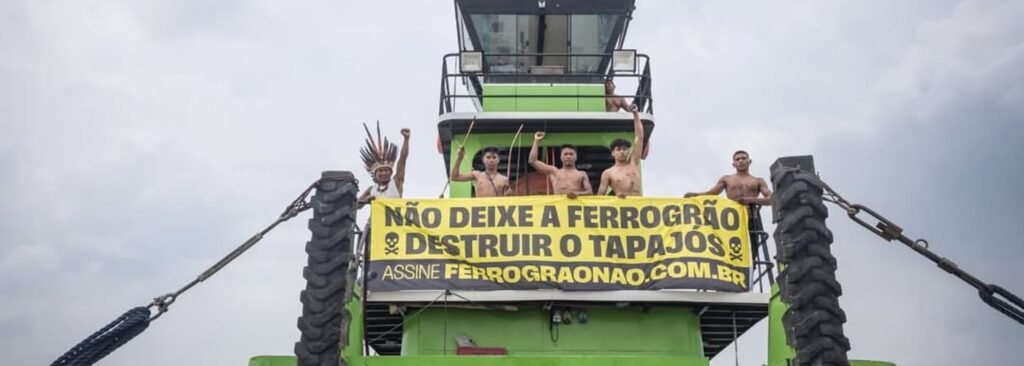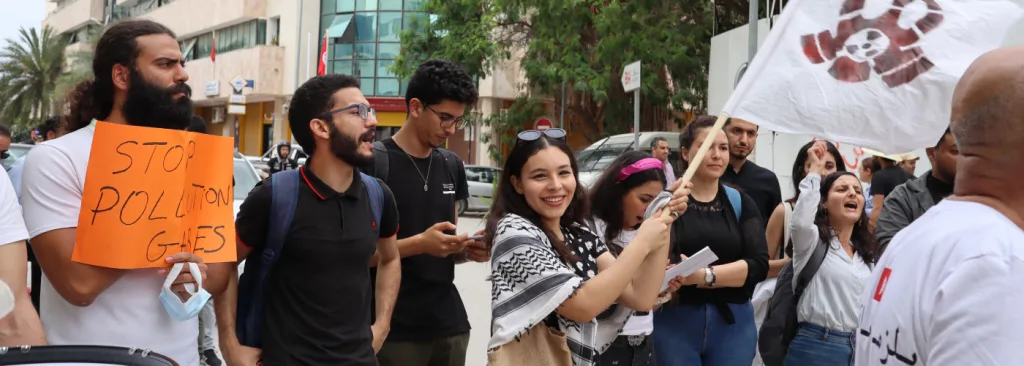Piracema is an ancient Tupi language word for the season when fish swim long distances upstream to find calm waters where they can lay their eggs. It inspired the name of the VCA program’s coalition Na Piracema das Mudanças Climáticas: women and young people in the Brazilian Amazon “going against the current” to address social and climate issues through art. Lucía Santalices from the coalition talks to us about artivism, climate justice, and ecofeminism.
The coalition works with women, young people, and artists. “Little by little, there is more conversation about the invisible work of caregiving, especially in households, which is mostly done by women. However, little is said about the fact that women are often also at the forefront of community and environmental care. That makes it particularly important to empower women for grassroots leadership in their territories,” says Lucía.
“On the other hand, we see that young people are increasingly distancing themselves from social movements and value individual achievements more. We want to seek dialogue with these young people and children in communities and territories, we believe that art is a good channel for this conversation,” Lucía continues.
Environmental activism and feminist empowerment
Piracema developed numerous activities in the municipalities of Altamira, Pará, Imperatriz, Maranhão; and Manaus, Amazonas for groups of women and racialized and dissident bodies. These are a few examples:
- The coalition effectively pressured municipal authorities to finish building a sanitary landfill in the city of Imperatriz. Up until then, there was only a garbage dump without sewage treatment, severely polluting the land and groundwater.
- In Manaus, the coalition built a strong bond with students at a public school who participated in the coalition’s theater workshops focusing on socio-climatic themes. This led to the creation of the cultural production company ,Ykamiabas Produções, with feminist and decolonial perspectives.
- The coalition works with the local Umbanda temple in Altmira, a space that welcomes a diversity of local youth, black people, LGBTQIA+ people, and inhabitants of Almira’s periphery. The work focuses on forest maintenance, as forests are home to enchanted beings, entities, and deities.
Artivism: where nature and culture meet
Art takes on a central role in Piracema’s approach. “It can be a tool for raising awareness about climate change. Socially engaged art can explicitly highlight the issue,” states Lucía. “But art can also strengthen people’s sense of belonging. Cultural traditions teach us to have a relationship of deep respect for nature. Art influences our ways of thinking and being, and keeps alive the Indigenous cultural traditions of territories. A people’s dances and songs, their food, their Indigenous cultural traditions, and their myths and rituals are a significant part of what gives them a sense of belonging to and wanting to care for their land. Art is collective.”
“In this sense, the relationship between culture and nature is fundamental. We could say that culture, and more specifically art, is humanity’s dialogue with the earth and the cosmos. Therefore, I believe that relating art and climate, beyond the simple use of art as a tool for raising awareness of the climate agenda, is crucial for us to value local cultures and technologies in the maintenance of forests,” Lucía concludes.
Voices for Just Climate Action
With support from the Voices for Just Climate Action program, Piracema has achieved a lot to be proud of, from multilingual festivals to hundreds of climate debates and productive art courses. Amongst the latter, Lucía signals out their literary, film, and music productions. “We produced a cordel – rhyming poetic prose in northeastern Brazil – about the importance of sanitary landfills, and a short documentary about the same topic. We also recorded four singles by different Brazilian composers, addressing issues related to social and climate justice. We produced an animated music video, which has been selected for the Vitória Film Festival, and produced a children’s book on local environmental issues that tells about the fantastic childhood of Mãe Nayara, a religious leader, healer, and master of local culture.”
A final lasting impact is a website created for the artists involved. “Many artists live in the outskirts and have great difficulty in showcasing their work, most of them did not have a portfolio. The website allowed them to expand and promote their work,” Lucía says.

